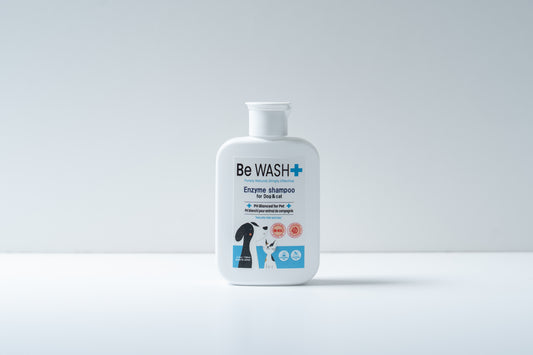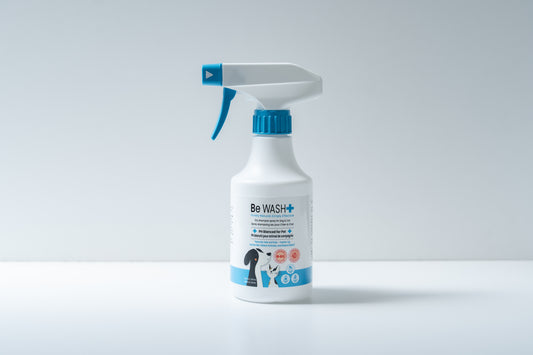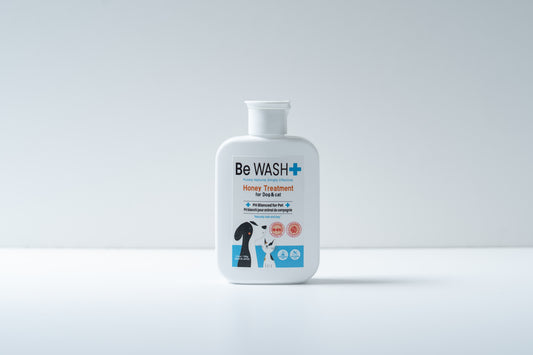About Us

I started Be-Wash pet skincare and shampoo for my senior dog, as it had become difficult to fully bathe him. Since his physical strength weakened, I wanted to make the bathing process faster and less stressful for him. Additionally, I wanted the product to have a skincare effect to easily maintain his skin and fur in healthy condition.
As a company, we had already developed gentle, skincare-grade hair care products for people using the moisturizing ingredient derived from Japanese sake: ethyl alpha-D-glucopyranoside (α-EG), and soy fermentation extract to enhance skin collagen levels and condition. I used this human formula to develop pet-friendly products. This is how Be-Wash for pets was born.
Founder
Harumi Kozaka
MOYU Co., Ltd.
Science of α-EG
Our BE-WASH products contain this functional beauty ingredient made by Japanese sake: alpha-ethyl d-glucoside or α-EG. It’s a natural moisturizing ingredient that has been used in Japanese beauty industry for long time.
We teamed up with a researcher, Dr. Kenji Ozeki from Kanazawa Institute of Technology, who discovered the functionality of α-EG, to make BE-WASH series. The study has shown that α-EG promotes collagen and elastin levels to increase skin elasticity and skin moisture barrier.
"The skin of sake brewers is beautiful." This fact has been empirically known for a long time. The factor contributing to this beautiful skin effect is the unique moisturizing ingredient found in sake, "α-EG (α-Ethyl-D-Glucoside)." Kanazawa MOYU has focused on the excellent moisturizing effects of this α-EG and sought the cooperation of Professor Kenji Ozeki, a leading researcher in α-EG studies at Kanazawa Institute of Technology. The research revealed that Ishikawa's local sake contains more α-EG compared to sake from major national manufacturers. Furthermore, new moisturizing functions of α-EG were discovered, and techniques for increasing α-EG production were also successfully developed.
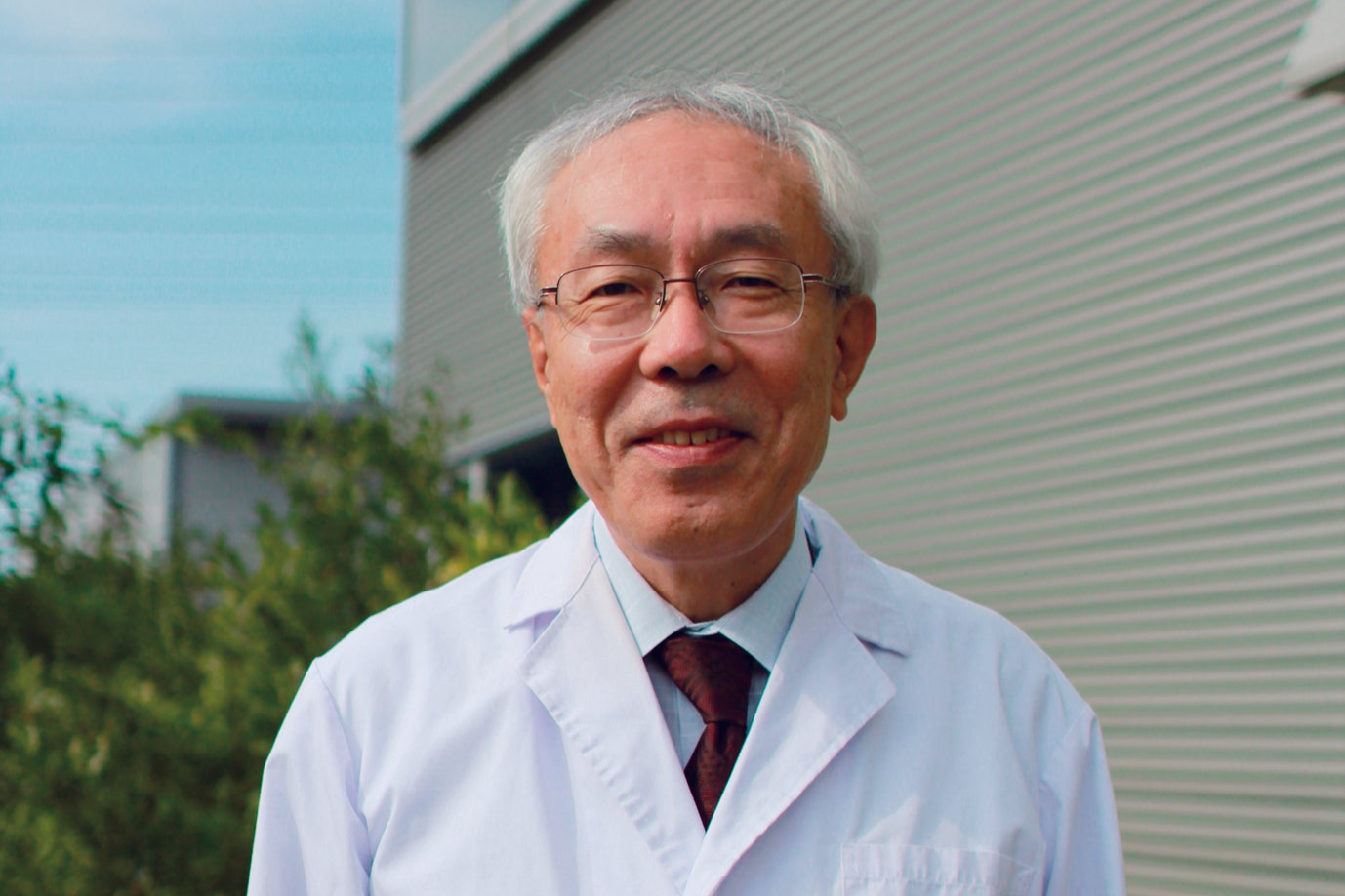
Research with KIT
α-EG has long been recognized for its excellent moisturizing effect, but this recent study has discovered that high effectiveness can also be achieved with low concentrations and short-term use. Additionally, it was revealed that Ishikawa's local sake contains nearly twice the amount of α-EG compared to nationally branded sake. A technique to increase the production of α-EG in an environmentally friendly and cost-effective manner has also been developed.
At Kanazawa Institute of Technology, members of the "Jokichi Takamine Project," named after Dr. Jokichi Takamine, who has significantly contributed to the industrialization of brewing technology and has deep ties to Ishikawa, are continuing their research on α-EG. In the future, the potential for new products utilizing α-EG is expected to grow across various fields, including the beauty industry. Through these products, we hope people nationwide will experience the power of Ishikawa's local sake and the moisturizing effect of α-EG.
Dr. Kenji Ozeki
Kanazawa Institute of Technology, School of Bio and Chemical Engineering, Department of Applied BioscienceResearcher, Genome Biotechnology Research Institute
Two Newly Discovered Moisturizing Functions of "α-EG"
1) Highly Effective Moisturizing Effect with at Low Concentrations and Short Duration
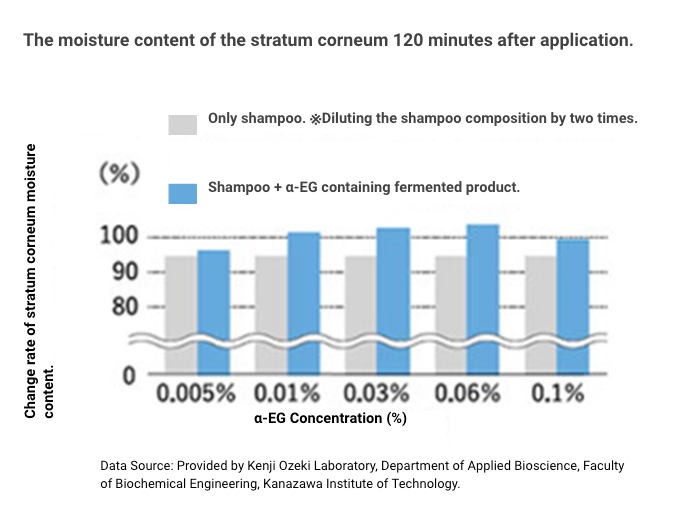
α-EG has long been recognized for its moisturizing effect when used long-term at a concentration of about 0.5% as found in sake. This recent study discovered that even at a low concentration of 0.01% and within a short duration of 15 to 120 minutes, α-EG possesses a quick-acting moisture retention function.
2) Increases Fibroblasts and Promotes Collagen Production
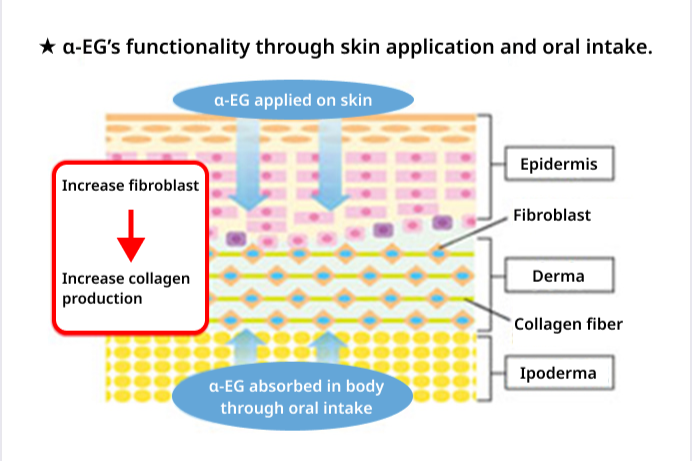
Collagen, which exerts a moisturizing effect within the dermis of the skin, is produced by fibroblasts in the dermal layer. It has been discovered that α-EG, even at an extremely low concentration of 0.00001%, has the function of increasing these fibroblasts and enhancing collagen production when applied topically or consumed.
The sake from Ishikawa Prefecture contains more α-EG
Local sake contains 1.4 times more α-EG than national branded sake
The difference in whether or not the starter mash is used affects the α-EG content.
- National brands: Approximately 2-3 days on average
- Ishikawa sake brewers: About 2-3 weeks
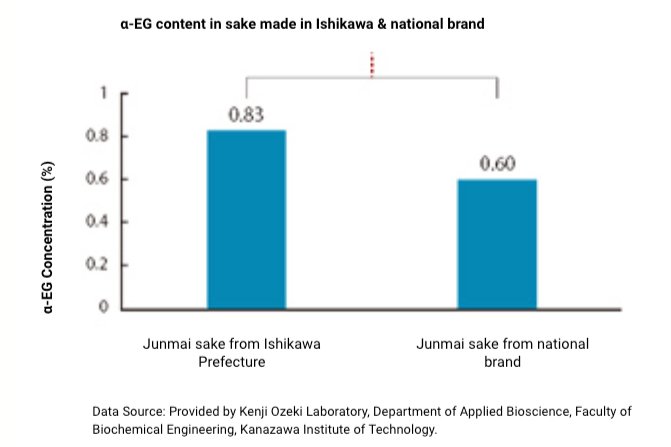
What is Shubo (starter mash)?
Shubo is a cultured mixture of steamed rice, koji, and water, used to cultivate superior yeast for brewing sake. The methods for producing shubo include "Kimoto" and "Yamahai" (which allow lactic acid bacteria to produce lactic acid) or "Sokujo" (which adds lactic acid in advance).
Shop Pet-Safe Shampoo & Skincare
-
Be-Wash Enzyme Shampoo
Regular price $50.00 CADRegular priceUnit price per -
Be-Wash Dry Shampoo
Regular price $38.00 CADRegular priceUnit price per -
Be-Wash Honey Treatment
Regular price $34.00 CADRegular priceUnit price per

